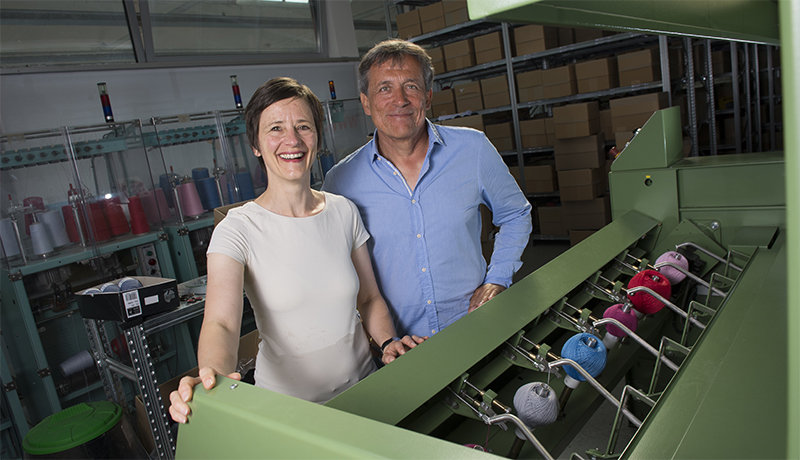This article originally appeared on LinkedIn.
When I think about the power of the internet to transform lives and create opportunity, I think of how it can both transform existing businesses and enable the new.
I recently met Andrea and Hans Gönner. The husband and wife duo’s business, Garnwelt, evolved from a big clothing company Hans had run in Southern Germany. When his company went out of business, the Gönners were left with lots of unused, high quality wool – which they turned into a transformational opportunity.
With the resilience and entrepreneurial spirit that is the hallmark of so many entrepreneurs, they invested in a machine to turn that wool into individual balls, and started selling it on eBay. Now they sell one million balls of wool every year to customers in 34 different countries, and employ 40 people.
A bright future on the internet
The Gönners are an inspiration, and they’re not the only ones.
Every day, in my role leading eBay’s operations across EMEA, I come across stories like theirs. Stories of long-established businesses that were forced off the high street by big chains, but found a home and a brighter future on the internet. But also stories of people who were able to use the internet to start a new business from their garage, or kitchen table. There’s no question that the internet has led to an explosion of economic opportunity and reinvention in Europe, and around the globe.
But I also see the problems and the frustrations which European small and medium sized businesses (SMB) encounter on a daily basis. Even a company that was born online, such as UK-based Spice Kitchen, a business run by Sanjay Aggarwal and his mother, Shashi, from their home in Birmingham. The Aggarwals export exotic spices to three continents and create part-time employment for six women. Yet they are continually frustrated by poor shipping and delivery service problems across Europe.
Unleashing the potential of Europe’s entrepreneurs
That’s why, when I accepted the invitation to take part in the recent World Economic Forum’s panel at Davos entitled Futureproofing Digital Trade, the discussion was so real and urgent for me. The challenges faced by Hans and Andrea, and Sanjay and Shashi, and the millions of European entrepreneurs like them who rely on the internet to thrive and prosper, were at the forefront of my mind as we discussed the measures that governments and businesses could take to better enable cross-border trade and future proof the digital economy.
Let’s be clear: SMBs are at the heart of the European economy. They are engines of growth, wealth and job creation. Between 2009 and 2014, two million new jobs were created by SMBs in Europe. Data from eBay shows that 93 per cent of all eBay SMBs in the EU exported, compared to an average of 26 percent of offline sellers between 2010-2014. They reach, on average, 18 different countries -- 10 countries within the EU.
However, dealing with the complexity of legislation and regulations across Europe limits their capacity to compete on a global scale. And the ability to export is essential to their survival – SMBs which export are two to three times more likely to survive.
But even as they are breaking down barriers to trade, these SMBs are encountering huge administrative problems. Just imagine trying to deal with 28 different legislative and tax regimes while keeping your small business thriving – that’s the daily reality for small business owners exporting in Europe. They encounter even more problems when exporting outside of the EU.
Just as Europe fought to dismantle trade barriers in the offline world, so too must we fight to remove online trade barriers.
Digital Single Market
Andrea Gönner might have echoed the thoughts of so many European entrepreneurs when she said: "VAT is our biggest problem." She called for the introduction of a "one stop shop".
That’s why the work being done by the EU Commission and the EU Parliament to build a real Digital Single Market is so important.
We’re also helping our sellers champion other needs – an efficient parcel delivery market in Europe; the lifting of online sales restrictions (including platform bans); and the simplification of the VAT regime and consumer protection laws.
We’ll continue making it easier for European businesses on our platform to operate. Already, the costs for carrying out commerce within the EU are four times lower on eBay compared to traditional commerce.
The internet is enabling SMBs across Europe to survive and thrive -- but more needs to be done to tear down the barriers that still hold Europe back. There’s an incredible, untapped opportunity for all of Europe’s citizens at stake.
Follow Paul Todd on Twitter.


